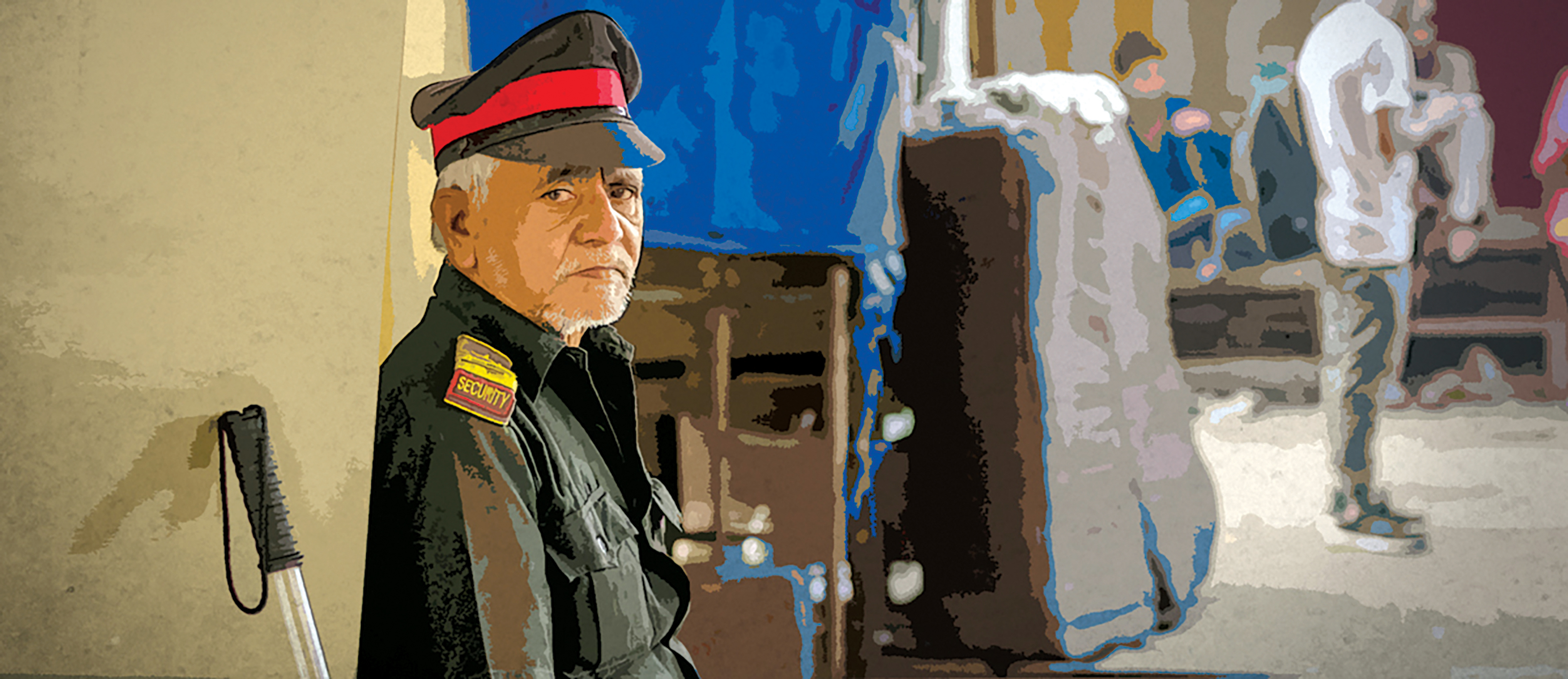After the surge of #MaiBhiChowkidar among politcians, let’s look at some of the stories of the real-life chowkidars
Ajay works as a security guard with the Total Security Agency (or an agency with a name that’s nearly as absolute). He belongs to Bhagalpur. He lives with his family in a slum near Seelampur in Delhi. He earns ₹8,000 and has three children and a wife to feed. Two kids go to a government school.
Ajay brought his youngest daughter to All India Institute of Medical Sciences with an infection of the bone of the leg. The impoverishment brought by the child’s infection led Ajay to borrow money from a moneylender at an interest of around 18 per cent. The girl was as thin as a stick. Besides infection, her main problem was acute malnutrition. After a couple of visits, Ajay defaulted on her outpatient appointment. On contacting him, we were told that since the loan was taxing and the girl’s recovery was very slow, the family returned to Bhagalpur. The other two children were taken out of school. Now Ajay works on repaying his loan. And yes, he still works as a security guard, as a chowkidar.
Pratap Manjhi is from Jharkhand. He owned a small piece of land there and managed to make ends meet, till his 13-year-old son was diagnosed with bone cancer which brought him to Delhi. Initially, they lived in a rented room in Yusuf Sarai near AIIMS, but three months down the line, their money depleted and the father-son duo shifted to live on the footpath in front of the main gate of AIIMS. They thus became “cancer refugees” in their own country. With treatment prolonging, Pratap took a job as a security guard at Ace Security Agency. They promised him only night shifts but in return, he signed a pay agreement of ₹15,000 even when he was only given ₹7,000. He now works through the night as a chowkidar and during the day, looks after his dying son.
Then there is Rekha. At the age of 16, she was married to a 40-year-old alcoholic. The man thrashed her black and blue but she persisted with him as she was only a Class 7 pass and had no means to look after her six-month-old daughter. One day he battered her so badly that he broke two of her fingers. She decided to leave him and left her village in western Uttar Pradesh for Delhi, where she arrived with her one-year-old daughter and took up a job as a security guard in a Noida-based security agency. The agency posted her at the gates of a posh residential colony. Being a woman, the residents of the colony trust her more than they trust her male colleagues and she thus runs errands for them for a nominal price. She works through the day as a chowkidarand in the evening as a maid for a couple of households. The only regret she has is that she now has less time to spend with her daughter who seems to be growing up quickly.
“But then that is the fate of a chowkidar, isn’t it? ” she asks.
Ram Singh from Rajasthan brought his seven-year-old son to AIIMS with a fungating tumour of the thigh bone. The tumour was so big that chances of limb salvage were minuscule. Ram Singh worked as a security guard with On Time Security Agency somewhere in Ghaziabad. He was insistent that the child’s limb is saved and was against getting it amputated. He took his son away when I tried to pursue that amputation was the only chance to save the life of the child. On subsequent visits, I realised he would default and not bring his son to AIIMS ever again.
Patiently, I asked him why he didn’t want an amputation. He hesitated for a few seconds and said, “Doctor saheb, if he has an amputation, he won’t be able to even become a chowkidar like me.”
Sultan from Uttarakhand was 22 years old when he had joined Fearless Security Agency in Delhi. Five years after working as a chowkidar, he was sure the company was looking to lay him off soon. His fair skin, deep brown eyes and Muslim name had made him suspect. His company was receiving many phone calls asking to replace the “Kashmiri-looking Muslim man” from wherever he was posted—construction sites, residential colonies, even corporate offices. His presence was causing anxiety.
I was not even sure if he was a Muslim. I asked him, and he smiled and replied: “Saheb, chowkidar ka koi mazhab kahan hota hai (Sir, does a chowkidar have a religion)?”
Names of people and organisations in this piece have been changed; their situations remain the same
www.newslaundry.com





